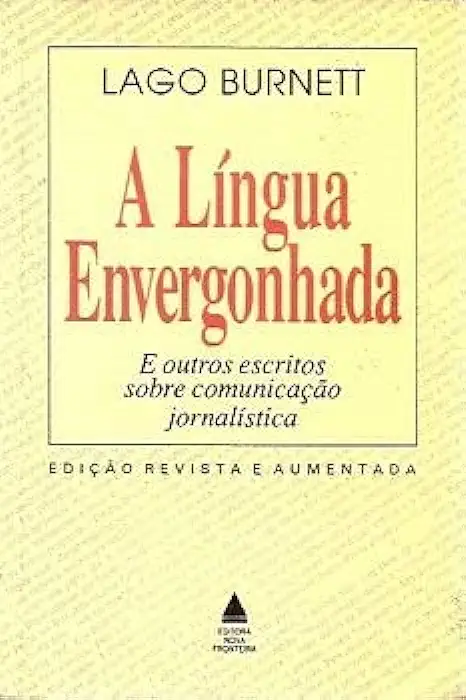
The Embarrassed Tongue - Lago Burnett
The Embarrassed Tongue: How Language Became Obscene and Why It Matters
A Journey Through the History of Obscenity
In "The Embarrassed Tongue," Lago Burnett takes readers on a fascinating journey through the history of obscenity, exploring how certain words and phrases have come to be considered offensive and why it matters. Burnett argues that obscenity is not simply a matter of taste, but rather a reflection of our cultural values and beliefs.
The Power of Words
Words have the power to shape our thoughts and actions. They can be used to express love, hate, joy, sorrow, and everything in between. But words can also be used to hurt, to offend, and to divide. Obscene words are often seen as the most offensive of all, but why is this?
The Social Construction of Obscenity
Burnett argues that obscenity is not something that is inherent in certain words or phrases. Rather, it is a social construction that varies from culture to culture and over time. What is considered obscene in one society may not be considered obscene in another. And what is considered obscene today may not have been considered obscene in the past.
The Changing Standards of Obscenity
The standards of obscenity have changed dramatically over time. In the Victorian era, for example, even the slightest hint of sexual innuendo was considered obscene. Today, however, we are much more tolerant of sexual language. But there are still some words and phrases that are considered to be beyond the pale.
Why Does Obscenity Matter?
Why does it matter that certain words and phrases are considered obscene? Burnett argues that obscenity matters because it reflects our cultural values and beliefs. The words that we consider to be obscene tell us a lot about what we think about sex, gender, and morality.
The First Amendment and Obscenity
The First Amendment to the United States Constitution guarantees freedom of speech. This means that people are free to express their opinions, even if those opinions are unpopular or offensive. However, the First Amendment does not protect obscene speech. Obscene speech is not considered to be a form of free speech because it is harmful to society.
The Harm of Obscenity
Burnett argues that obscenity can have a number of negative effects on society. For example, obscenity can:
- Promote violence against women
- Degrade women and other marginalized groups
- Create a hostile environment for children
- Undermine social norms and values
The Case for Free Speech
Despite the potential harms of obscenity, Burnett argues that free speech is more important. He believes that people should be free to express their opinions, even if those opinions are offensive. However, he also believes that people should be responsible for the words that they use.
Conclusion
"The Embarrassed Tongue" is a thought-provoking and important book that challenges our assumptions about obscenity. Burnett argues that obscenity is not simply a matter of taste, but rather a reflection of our cultural values and beliefs. He also argues that free speech is more important than the potential harms of obscenity. "The Embarrassed Tongue" is a must-read for anyone who is interested in the history of language, the power of words, or the First Amendment.
Enjoyed the summary? Discover all the details and take your reading to the next level — [click here to view the book on Amazon!]